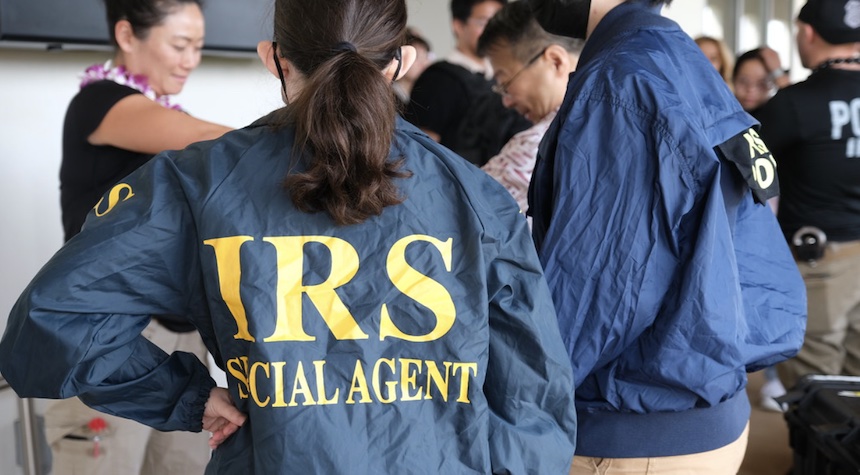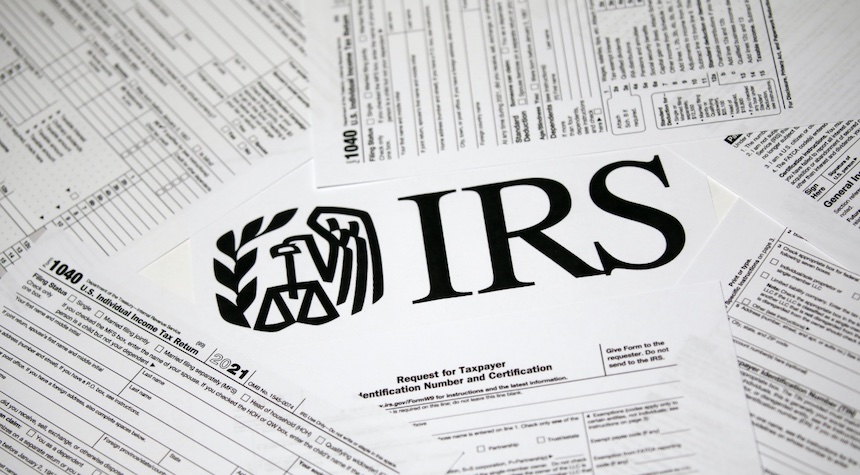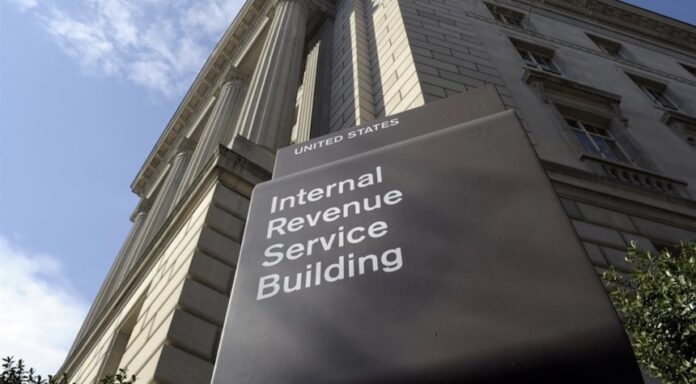Most Americans have never experienced the unsettling feeling of a federal agent knocking unexpectedly on their door. The majority of Americans probably hope they never experience this. I was shocked to learn that the Internal Revenue Service is one agency that engages in this practice. I’m sure I’m far from alone.
The revelations that followed about the timing and nature of the charges brought against Taibbi, as well as the fact that they were completely unfounded, only highlighted the alarming nature of the incident. The incident was ironic because it coincided with his testimony to the Select Subcommittee of the Federal Government on weaponization.
The IRS stated that it checked Taibbi’s 2018 tax returns to make sure he wasn’t a victim of fraud. The IRS sent him two letters, one on October 24, nine days after he filed his return, and the other on March 23, 2020.

Taibbi claimed that the IRS opened an investigation on Christmas Eve in December 2022. The IRS did not contact Taibbi before March 9, 2023, when they showed up at his front door. It was exactly three years since the last letter they sent, and the day he appeared in front of Congress.
Three weeks earlier, he published his first Twitter Files which exposed government abuses. The ninth segment of the Twitter Files was released on the same day by Mr. Taibbi. The section described how federal agencies, “from State Department and Pentagon to CIA”, collaborated in order to censor or control speech on social media platforms.
The IRS did not prove that identity fraud had occurred, nor did they produce the “purported” letter they claimed to have written to Taibbi, or explain why they opened the case or visited his home in the first instance.

On top of it all, not only didn’t Taibbi owe any taxes, he was entitled to a “substantial refund,” according to the letter from Jordan and they closed the matter against him on March 23.
Then came the story of an Ohio taxpayer who received a visit in April from an IRS agent who used an alias to trick his way into her home.
On Friday, Judiciary Chairman Jim Jordan (R-OH) revealed that an Internal Revenue Service agent used an alias to try to trick a taxpayer into letting him into her home. In a letter to IRS Commissioner Daniel Werfel, Jordan asked simply, “Why is the IRS using fake names to harass Americans?”
Why is the IRS using fake names to harass Americans?
New from @Weaponization here: pic.twitter.com/AYiruOs5lm
— House Judiciary GOP 🇺🇸 (@JudiciaryGOP) June 17, 2023
In a second release, the Committee wrote:
According to new information, on April 25, 2023, an IRS agent entered a taxpayer’s home in Ohio using a false name and deceptive techniques. The letter expressed grave concerns about the IRS abusing civil rights and asked for documents and communications related to the deceptive visits. Both the House Judiciary Committee and the Select Subcommittee to Weaponize the Federal Government continue to examine how to best protect Americans’ liberties.
The agency has announced it will stop the majority of unannounced home visits. Unfortunately, these visits have been happening for a long time and they will continue in some instances.
The Internal Revenue Service (IRS) announced Monday that it will “end” the majority of unannounced visits to homes by revenue officers. This is part of an effort to “reduce confusion in the public and improve safety measures for both employees and taxpayers.”

The IRS claims the change will “reverse decades of IRS revenue agent practice, where unarmed IRS employees visit homes and businesses to collect unpaid taxes and unfiled tax returns in order for taxpayers to settle account balances. ”
IRS released a statement stating that “Effectively unannounced visits will cease, except in certain special circumstances.” In order to schedule meetings, the IRS will send letters. ”
Danny Werfel, IRS Commissioner, stated: “We are taking a fresh look at the IRS in order to better serve taxpayers and the nation. This change is common sense. “Changing the long-standing procedure will increase safety and confidence both for taxpayers and IRS employees. ”

While it’s still difficult to understand why any such visit should occur without prior notification, the IRS maintains such instances will be “rare” going forward.
The agency says that in “rare cases”, such visits will be allowed, including “services of subpoenas or summonses” as well as “sensitive enforcement activities that involve seizure of confiscated assets and other sensitive enforcement actions – particularly those that may fall outside of the government’s reach.”
The IRS said that “To put this in perspective, these situations typically number less than a few hundred per year – a fraction of tens of thousands of unannounced visits that were usually made annually under the previous policy.”
After hearing the announcement, Taibbi expressed his gratitude to Jim Jordan (R – OH), the Chair of the Judiciary Committee, and the team that worked with him in putting an end to this practice.
Wow. Thanks to @Jim_Jordan and his staff for pushing this issue. The IRS shouldn’t be making surprise visits, and they should get credit for making the change. https://t.co/Cxzwgo4oSW
— Matt Taibbi (@mtaibbi) July 24, 2023
The previous policy allowed “tens of thousands” of visitors to enter the country without prior notice each year. It seems like a bad plan for everyone involved. Jordan and the Weaponization Committee (and Taibbi) deserve credit for exposing a practice that needs to be overhauled.


